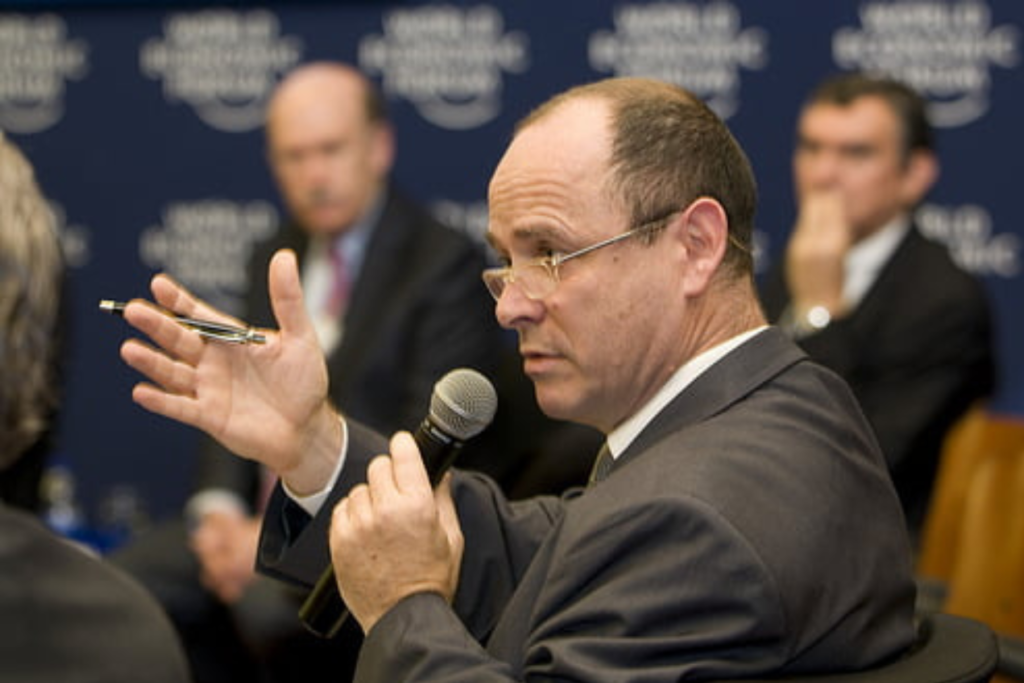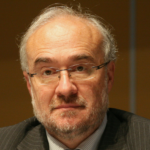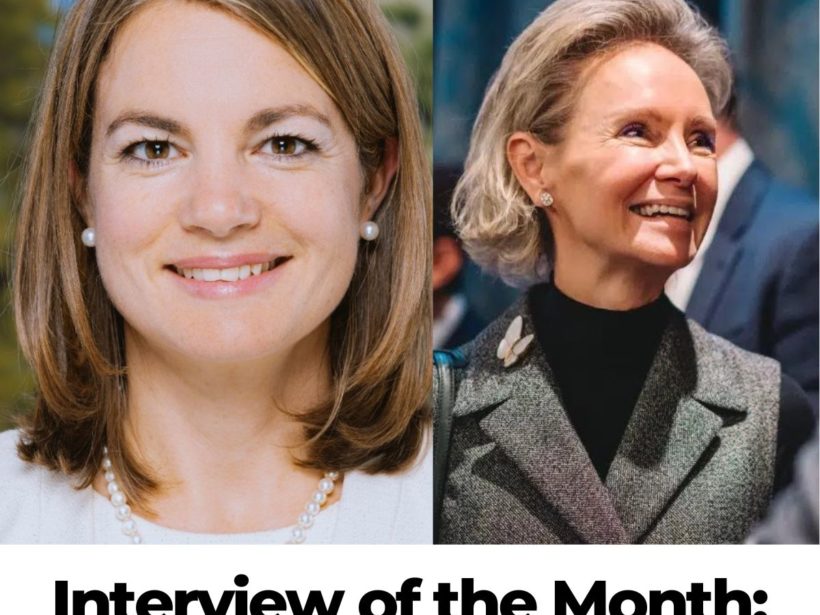
Nature Finance: the Next Wave
Nature-related finance is rising up the policy agenda with unprecedented speed. The visibility of nature-related risks and investment opportunities is growing. Conserving and harnessing nature is a keystone to any successful strategy in addressing climate and food security challenges, as well as in the broader sustainable development agenda. In advance of the official launch of NatureFinance, the next phase of the Finance for Biodiversity Initiative (F4B), we spoke with Dr Simon Zadek, Chair of NatureFinance and soon to be the first Executive Director of NatureFinance. Core to our discussion was how best to scale market-shaping policies, innovation, and citizen action to make nature count in global finance. We also discussed how to power these urgent needs by helping to apply the unique Geneva and Swiss ecosystems in creating a global centre of excellence in nature finance.
What is “nature finance” and how does it complement – or differ – from the broader sustainable finance models?
Nature finance is a new and increasingly critical component of the wider focus on sustainable finance. Its importance has for too long been undervalued, with ‘conservation finance’ too focused on small scale resource mobilisation to finance nature conservation. For the financial community, nature finance is about both crystallising and taking account of nature related financial risks and valuing the place of natural capital and ecosystem services in investment. Both are developing at lightning speed: for example, the measurement and pricing of nature-related risk is generating a new data industry alongside new tools, standards, and regulations.
Securing a thriving nature is of course about far more than financial risks and opportunities. After all, 100% of our GDP is 100% dependent on nature, a painful truth for those already suffering from its lack or poor health. Policy makers and financial regulators are just beginning to get their heads around what this meta-dependency on nature means for the financial system. Work is advancing on the place of nature in financial stability and prudential regulation, as well as a slew of new rules connecting nature impacts to everything from trade and investment to money laundering rules. New markets and technologies are underpinning new nature-related opportunities, from nature credit markets to infrastructure and food systems.
It appears increasingly to be accepted that financial and capital markets need to align with the Sustainable Development Goals. Efforts in this direction are being made everywhere. Why are you proposing a seemingly narrower focus on nature finance and how does this advance the overarching SDG agenda?
There is nothing narrow about nature, and success in addressing the SDGs depends on our collective success in protecting the ecosystem of which we are a part. In that sense, we are not proposing that a focus on nature finance replace the present, broader focus on sustainable forms of finance. Far from it, we are saying that none of these broader efforts can succeed if nature continues to be undermined at the present frightening pace. Our focus on nature finance, much like its older cousin, climate finance, seeks to correct a dangerous gap in the work of the broader sustainable finance movement. Finance that achieves nature-positive outcomes is a sine qua non of development success.
Does a focus on nature finance not risk distracting us from the urgent need to focus on climate finance or, say, social injustice? Can we address all these together effectively?
It is not a question of one or the other. Nature finance addresses the fundamental underpinning of society and the economy. Without a healthy and productive natural environment, neither the climate goals, nor those of social equity have any chance of being reached. Indeed, addressing nature finance goals offers a critical pathway to address both the climate and social equity agenda.
We are told that we are living the Sixth Great Extinction, with biodiversity being lost at an accelerating pace. Would it not be better to focus on saving what’s left of wild nature rather than targeting the financial community?
Finance is the lifeblood of the global economy, and it is how we do economy that places nature, including us, at risk. Aligning global finance with nature positive, equitable outcomes is therefore the only way to ensure that nature can thrive, and that we can survive. Expenditure on conserving wild nature runs at about US$100 billion per year. Governments spend several multiples of that sum undermining nature with public subsidies – e.g., to agriculture, fossil fuels, or irrigation. This sum is in turn dwarfed by the vast amounts invested by the private sector in ways that impact, and often destroy, nature. Some may choose to raise more resources for conservation (which, of course, we must do), whilst others take on the challenge of influencing how the vastly greater sums of capital are deployed. We have chosen to focus on the latter.
If NatureFinance will not be focus on raising money for conservation, on what sorts of issues will it focus?
Markets need to be reshaped to deliver equitable, nature positive, and of course net zero outcomes. Delivering that takes major policy and market innovation, underpinned by citizen demands and action, especially in a world beset with on-going crises that make classical international cooperation increasingly difficult. There is much to be done in reshaping the “rules of the game” governing financial and capital markets – seeking to create an enabling market that is friendly to nature-positive and socially equitable outcomes. This means looking at policies, incentives, rules and regulations, norms and standards, data, and disclosure, and all the other components of a favourable enabling environment. We seek to build nature into financial risk calculus, and to develop and promote investment opportunities in new nature markets. So, we want to work on all those factors that, together, will align finance with the requirements of a healthy planet.
NatureFinance is setting up shop here in Geneva. What are the advantages of Geneva over other leading financial centres like London, Paris, or New York?
Though Geneva is a relatively small financial centre, it has a set of unique advantages offered no place else in the world. In the financial world, it is a leading centre in responsible investment and in micro-finance. It also plays an important role in wealth management, opening the possibility of working with high-net-worth individuals and family offices concerned by nature destruction. At the same time, it is one of the world’s leading centres for international cooperation – the global technical and operational capital of the UN’s efforts to implement the SDGs. It is home to some of the world’s leading nature conservation organizations as well as leading networks of businesses committed to sustainable development. Further, the wider Swiss ecosystem includes some of the leading research and teachings institutions, many working on sustainable finance. No other financial centre can offer this range of advantages.
How do you anticipate that NatureFinance will function – as a campaigning group, a think tank, a service provider?
Labels can be unhelpful, when what is needed is a new generation of change-making institutions that are ambitious, risk-taking, and themselves shapeshifting in how they create and shape waves. We want to be part of this new generation of actors, hybrid players deploying advocacy and campaigning, and research and indeed our own investments in nature positive ventures.
With others, we need to open new pathways for scaling positive impact, which requires many forms of engagement, collaboration, partnerships and coalitions. We hope to mobilize and partner with the rich Geneva and Swiss ecosystems and link them to similar networks elsewhere. We plan to continue the work of Finance for Biodiversity in identifying, articulating, and understanding emerging trends in nature finance and interpreting these to the broader community. We plan to initiate and, in some cases spin off, specialized initiatives such as our Sustainable Sovereign Debt Hub, often established in partnership with members of the ecosystem. And we wish to work directly with market players – banks, investors, innovators – in expanding the market for nature-positive business opportunities. We believe that these are, at present, insufficiently understood.
What sorts of partnerships do you envisage for NatureFinance with the Geneva and Swiss community?
The task that NatureFinance is taking on is vast and achieving it is well beyond the scope of the small team that we intend to gather. So virtually everything we do will be done through partnerships – including partnerships where NatureFinance is a secondary player. Our focus is on bringing about transformative change, not on building NatureFinance as the inevitable lead player. We see the first range of partnerships being largely in the Swiss environment, but an important part of our challenge is also to connect institutions in Geneva (and elsewhere in Switzerland) with key players in other parts of the world, and particular in developing and emerging economies.
How can people learn more about NatureFinance and explore partnership opportunities?
Join us for the official launch of NatureFinance during Building Bridges Week, Wednesday, 5 October, 11h-12h30 CEST.



